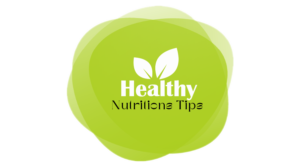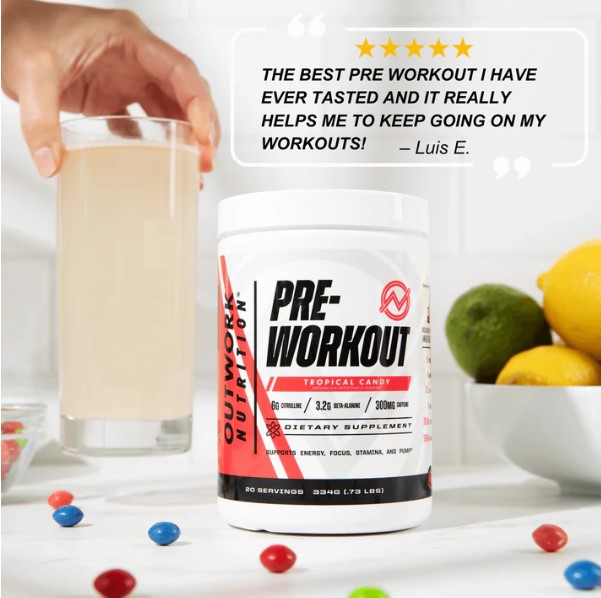When it comes to fitness and training, one term you’ve likely heard repeatedly is “pre-workout.” Whether you’re a beginner in the gym or a seasoned athlete, what you do before your workout can significantly influence your performance, endurance, and recovery. Pre-workout is not just about supplements—it’s about preparing your body and mind for the best possible training session.
In this guide, we’ll break down everything you need to know: what pre-workout means, the role of supplements, natural alternatives, nutrition tips, benefits, potential risks, and how to optimise your routine for long-term fitness success.
What Does “Pre-Workout” Mean?
“Pre-workout” refers to the activities, foods, and supplements consumed before exercise to enhance performance. It can include:
- Nutrition: Eating the right balance of carbs, protein, and fats.
- Supplements: Specialised products designed to increase focus, strength, and endurance.
- Rituals: Warm-ups, hydration, or mental preparation.
The goal is simple: to fuel your body and sharpen your focus so you get the most out of your training session.
Why Pre-Workout Matters
Skipping pre-workout preparation can leave you feeling sluggish, unfocused, and less motivated. Proper preparation, on the other hand, provides:
- Energy Boost – Fuels muscles with glycogen and increases alertness.
- Improved Endurance – Helps delay fatigue during high-intensity training.
- Enhanced Strength & Power – Supports better performance in lifting and resistance training.
- Mental Focus – Sharpens concentration, reducing distractions.
- Better Recovery – Proper pre-workout nutrition reduces muscle soreness post-training.
Common Ingredients in Pre-Workout Supplements
Most pre-workout supplements contain a blend of ingredients designed to boost energy, blood flow, and focus. Here are the most common ones:
- Caffeine – The most popular stimulant for energy and alertness.
- Creatine – Enhances strength and supports muscle recovery.
- Beta-Alanine – Helps buffer lactic acid, delaying muscle fatigue.
- Citrulline Malate – Improves blood flow and muscle pump.
- BCAAs (Branched-Chain Amino Acids) – Reduce muscle breakdown and promote recovery.
- Electrolytes – Support hydration, especially for endurance athletes.
Tip: Always check labels, as dosages and combinations vary across products.
Natural Pre-Workout Options
Not everyone needs or prefers supplements. Many natural foods can serve as excellent pre-workout fuel:
- Bananas: Quick carbs for instant energy.
- Oats: Slow-digesting carbs for sustained performance.
- Greek Yogurt with Fruit: Protein plus carbs for balanced energy.
- Peanut Butter Toast: Healthy fats for endurance.
- Coffee: A natural caffeine boost for alertness.
Natural pre-workouts are often safer, cost-effective, and provide additional nutritional benefits.
When Should You Take Pre-Workout?
Timing is crucial.
- Supplements: Usually taken 20–30 minutes before exercise for maximum effect.
- Meals: Eat a balanced meal 2–3 hours before training.
- Snacks: Light snacks can be eaten 30–60 minutes pre-workout.
This balance ensures your body has both immediate and sustained energy sources.
Potential Side Effects of Pre-Workout Supplements
While pre-workout supplements are safe for most people when taken properly, some may experience side effects, especially with high stimulant levels.
- Jitters & Anxiety – From excessive caffeine.
- Digestive Issues – Some ingredients may cause bloating.
- Insomnia – Taking pre-workout too late in the day can disrupt sleep.
- Dependence – Relying too heavily on supplements may reduce natural energy regulation.
To reduce risks, start with smaller doses, choose trusted brands, and avoid late-night consumption.
Pre-Workout for Different Fitness Goals
Not all workouts require the same pre-workout routine. Here’s how to tailor it:
- Strength Training: High-protein snacks plus creatine and caffeine for performance.
- Cardio/Running: Focus on carbs (like oats or bananas) plus hydration.
- HIIT/Endurance Sports: A mix of carbs, electrolytes, and BCAAs.
- Weight Loss Goals: Light, protein-rich snacks and moderate caffeine.
Pre-Workout vs. Post-Workout
It’s important not to confuse the two.
| Aspect | Pre-Workout | Post-Workout |
| Purpose | Fuel & performance | Recovery & repair |
| Focus | Energy, endurance, focus | Muscle recovery, glycogen replenishment |
| Best Nutrition | Carbs + Protein (before training) | Protein + Carbs (after training) |
| Supplements | Caffeine, Creatine, Beta-Alanine | Whey Protein, BCAAs, Glutamine |
Both are equally important in a complete fitness routine.
Best Practices for Pre-Workout
- Stay Hydrated – Dehydration reduces performance dramatically.
- Don’t Overdo Caffeine – More is not always better; aim for 150–250 mg.
- Test Tolerance – Start small to see how your body reacts.
- Combine Food + Supplements – A balanced approach yields better results.
- Listen to Your Body – If something feels off, adjust your intake or timing.
Conclusion
Pre-workout preparation is about maximising energy, focus, and endurance while reducing fatigue. Whether you prefer supplements or natural foods, what matters most is consistency, balance, and understanding your body’s needs. By tailoring your pre-workout routine to your goals—whether that’s lifting heavier, running faster, or simply staying motivated—you’ll be setting yourself up for long-term fitness success.
Key Takeaways
- Pre-workout means everything you do before training: food, supplements, and preparation.
- Benefits include improved energy, endurance, focus, and recovery.
- Natural foods like bananas, oats, and coffee work just as well as supplements for many people.
- Timing is critical: meals (2–3 hours before), snacks (30–60 minutes before), and supplements (20–30 minutes before).
- Avoid over-relying on supplements; balance with proper nutrition and hydration.
FAQs About Pre-Workout
- Do I really need pre-workout supplements?
Not necessarily. Many people perform well with just a good diet, hydration, and sleep. Supplements are optional but can give an extra boost. - Can I take pre-workout every day?
Yes, but moderation is key. Overuse, especially of stimulant-heavy products, may reduce effectiveness over time. - What’s the best pre-workout for beginners?
Start with natural options like coffee and a light carb-protein snack before considering supplements. - Is pre-workout safe for weight loss goals?
Yes, but choose low-calorie options and avoid sugar-heavy supplements. - Can I use coffee instead of pre-workout supplements?
Absolutely. Coffee is one of the most effective natural pre-workouts due to its caffeine content. - What happens if I skip pre-workout?
You can still exercise, but you may feel more fatigued, less focused, and unable to push to your full potential.




